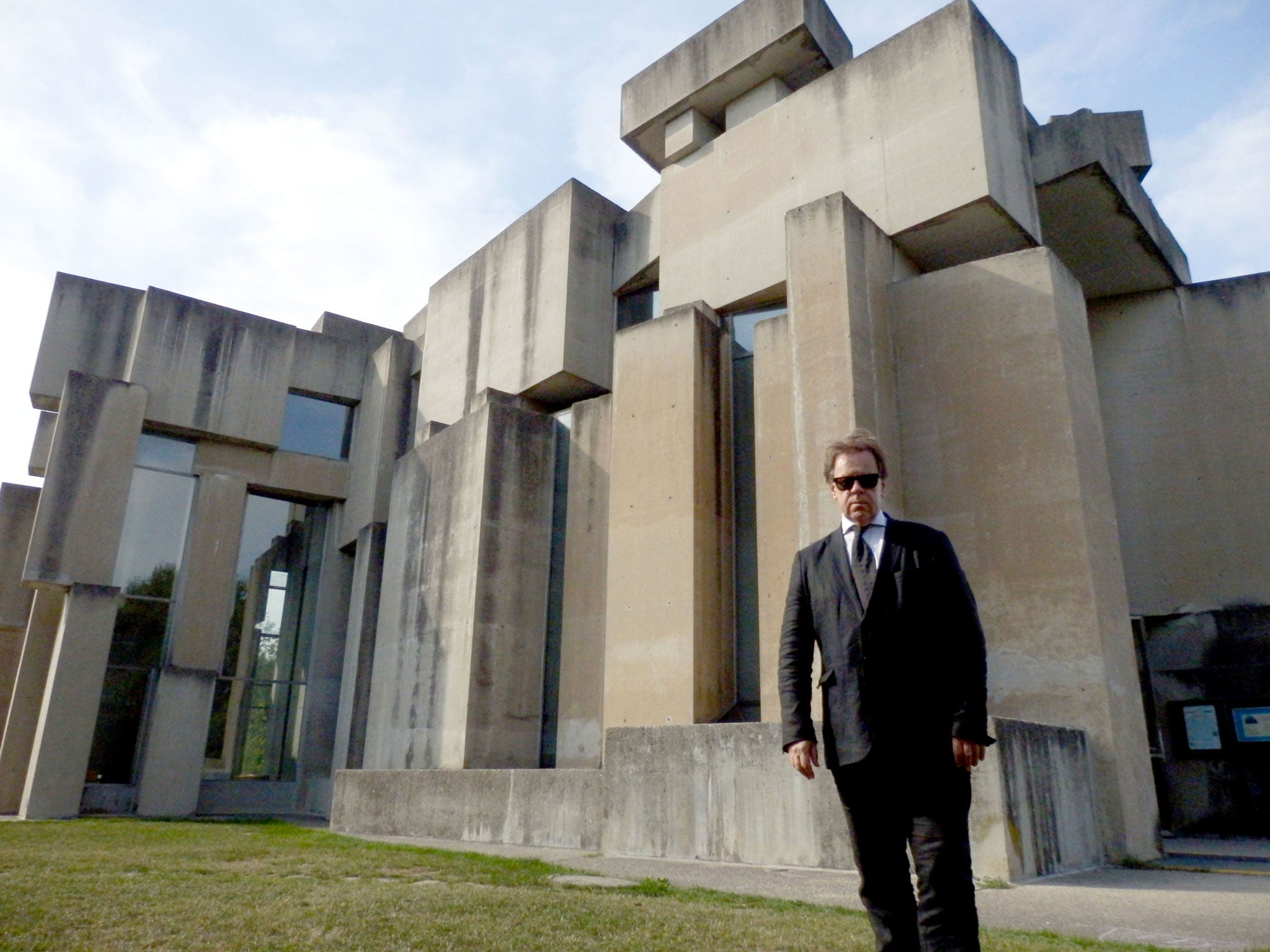Concrete Poetry with Jonathan Meades, TV review
A brutally honest contrarian reveals why buildings don’t have to be beautiful

Your support helps us to tell the story
From reproductive rights to climate change to Big Tech, The Independent is on the ground when the story is developing. Whether it's investigating the financials of Elon Musk's pro-Trump PAC or producing our latest documentary, 'The A Word', which shines a light on the American women fighting for reproductive rights, we know how important it is to parse out the facts from the messaging.
At such a critical moment in US history, we need reporters on the ground. Your donation allows us to keep sending journalists to speak to both sides of the story.
The Independent is trusted by Americans across the entire political spectrum. And unlike many other quality news outlets, we choose not to lock Americans out of our reporting and analysis with paywalls. We believe quality journalism should be available to everyone, paid for by those who can afford it.
Your support makes all the difference.Sunday evening. That TV time, when the nation settles in for a cosy episode of Call the Midwife or a cosy episode of Downton Abbey. The perfect time, then, for an aggressive documentary assault on accepted notions of “pleasing’ and “pretty”.
A documentary like Bunkers, Brutalism and Bloody-mindedness: Concrete Poetry (BBC4) with Jonathan Meades.
Bonkers, brutal and bloody-minded would be a fair description of Meades’s entire TV oeuvre, which, since the early Nineties, has included Jerry Buildings: Unholy Relics of Nazi Germany, an unforgettably odd, surreal film, and last year’s brilliant Jonathan Meades: the Joy of Essex. An architectural style still synonymous in many minds with “concrete monstrosity” is the perfect match for Meades, and, boy, did he do it justice.
In the decades since Brutalism’s heyday, we’ve already had a Prince Charles-led backlash, followed by a concrete fetishist’s frontlash. These days, Britain’s Brutalist triumphs – Trellick Tower in London, Preston Bus Station, Edinburgh’s Scottish Provident building – are as likely to be the subject of conservation campaigns as demolition orders. This, we learned, is a similar taste trajectory to that followed by Brutalism’s precursor the Modern Gothic, almost a century earlier.
Meades allowed time for such interesting historical reflections by mounting no defence of Brutalism, as such. Instead, early on in this part one of two, he asserted that “the greatest artists incite the most furious contempt”, and then let all the familiar criticisms – “ugly”, “cold”, “tainted by totalitarianism” – stand as further evidence of greatness. So confident was Meades in concrete poetry’s eloquence, that he saved his bitchiest disdain for its early proponents. Reyner Banham was “a man who would have trampled on his grandmother to snuggle up to a passing trend”.
Like the work of that other great contrarian Adam Curtis, this was enjoyable as much for the spectacle of dexterous thought in action as for its revelations on any narrowly defined topic. If Michael Grade has his way and the BBC becomes news-only, who’ll be left to expand our minds with television?
Join our commenting forum
Join thought-provoking conversations, follow other Independent readers and see their replies
Comments